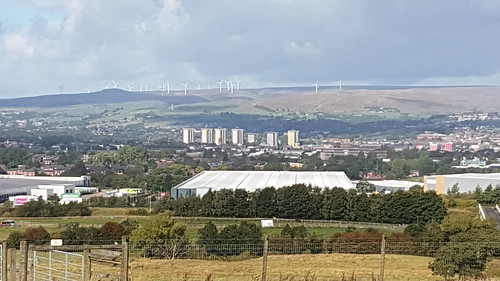Rochdale byelection confirms dissatisfaction but little else is certain
Rochdale #Rochdale

The Rochdale byelection was an extraordinary electoral event. Not only did the combined share of the vote for the Conservatives and Labour drop by 63 percentage points – the worst result for the big two since the wartime byelections of 1941-45 – but the Liberal Democrats, Greens and Reform UK all slipped as well. However, Rochdale’s circumstances were so bizarre that one must be careful when drawing general conclusions about the implications for national electoral politics.
The stereotype of Rochdale is that it is a deprived Labour stronghold. Although the town does struggle with social problems, the constituency includes some prosperous suburban and rural areas to the east of the town. Rochdale’s electoral history is varied and volatile. Labour has faced competition from the Lib Dems, who held the seat in 1972-97 and 2005-10. In 2015 the Lib Dem vote plunged and Ukip came second, in 2017 the Conservatives surged to second place, and in 2019 the Tories polled their highest share of the vote since they last won the seat in 1955.
While there is usually a loyal Labour vote, the opposition to Labour floats around between Lib Dem, Tory and populist options. The mid-campaign disowning of Azhar Ali freed up the Labour half of the electorate to become just as volatile themselves.
George Galloway’s victory was made possible by the demographics of Rochdale. There are only 17 constituencies with a higher proportion of Muslim residents than Rochdale’s 30.5%, two of which – Bethnal Green and Bow and Bradford West – have already had the experience of being represented by Galloway.
Galloway’s campaigning has always centred around Muslim concerns; many of the arguments he made in Rochdale were updated versions of those from the Bradford campaign trail in 2012. Labour’s stand on the war in Gaza was potent fuel for protest votes, but the combustible material was always there.
Chart
The consolation for Labour is that the general election will be different in at least two ways. The conversation will be about who is to form the national government, rather than the issues that surface in a one-off byelection. There is also only one George Galloway. Nobody else has the track record of electoral success, the network of support and the personal celebrity built in non-traditional media with wide reach among youth and minority populations.
Labour is vulnerable in a few heavily Muslim constituencies, but will be spared from significant losses by the limited supply of viable Independent or small party challengers.
It would be a mistake to read Galloway’s win exclusively in the context of Muslim politics and Gaza. He is canny at playing up traditional workerist and social conservative themes for left-behind white voters; he won the white suburban wards of Bradford West in 2012 and will have polled respectably among Rochdale’s majority of non-Muslim voters.
Galloway was a more convincing populist than Reform UK’s Simon Danczuk; he even echoed Trump in his literature, calling to “make Rochdale great again”. The fact that many Muslims are willing to vote for a populist who tells them what they want to hear is not a distinction between Muslims and the rest of the population.
The second place for the Independent candidate David Tully, with 21.3% of the vote, was almost as startling as Galloway’s victory. Tully went unnoticed by observers, but his campaign, based largely around local identity, made an impact on voters.
Galloway and Tully represent alternative responses to the problems facing towns such as Rochdale. To Tully, the answer is to have an authentic local voice, distant from party politics, speaking for Rochdale in Westminster. The Galloway argument is that one is electing a parliamentarian, and that a noisy and controversial advocate is what Rochdale needs to put it on the map.
Galloway is unique in modern politics for having represented four entirely different constituencies – in Glasgow, east London, Bradford and now Rochdale – but it is a distinction he shares with another Labour renegade, Ramsay MacDonald.
Labour will probably recover Rochdale in the general election with a fully endorsed candidate and a proper campaign. But the disaffection from politics revealed by this strange election is a warning sign. The turnout of 39.7% was reasonably high for a byelection, higher than in the mainstream party contests at Wellingborough and Kingswood despite the absence of the Labour machine.
Rochdale has an acute case of the politics of decline. Successive political projects – New Labour, Brexit, levelling up – have all been seen to fail, as central and local public services and infrastructure deteriorate. As well as Gaza, the electorate worried about health, crime and the decline of Rochdale as a retail centre. If Labour wins the general election, it may not have much time to turn things around before part of its core electorate loses patience.